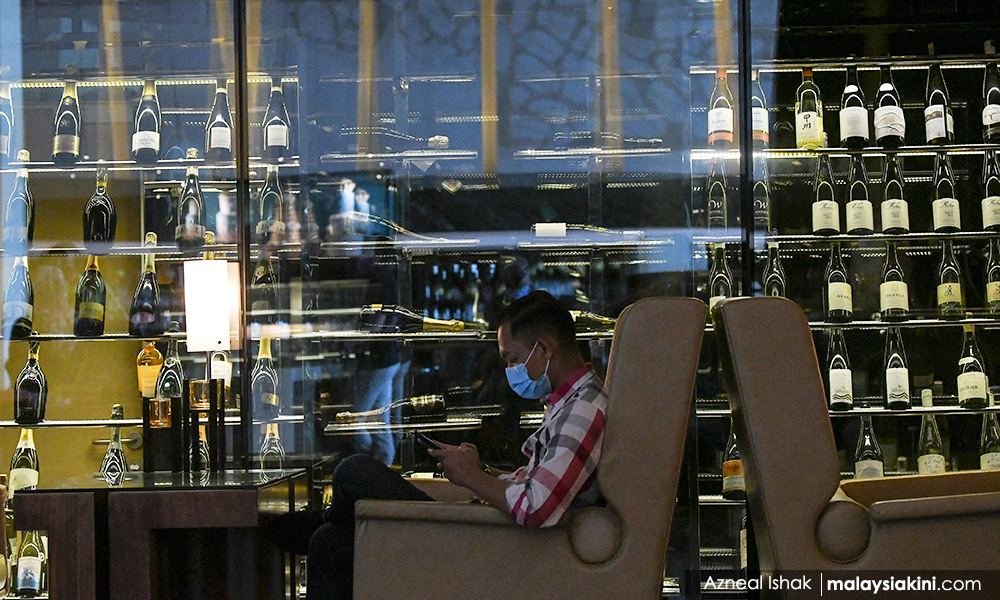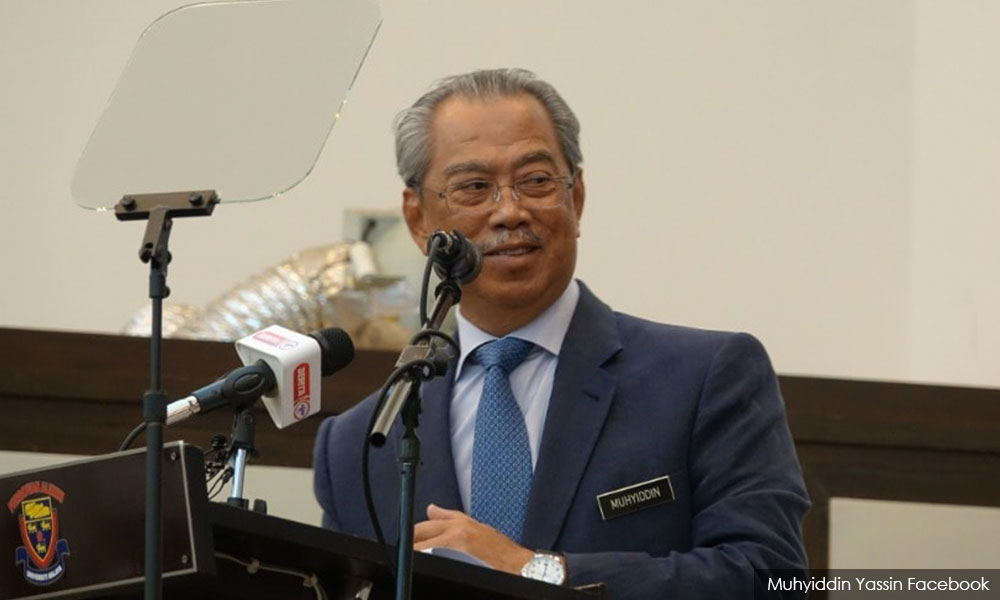The poignant albeit distressing message sent out by a publican in Petaling Jaya on Monday to regulars said: “It has never been our intention to break the law as we are licenced to serve both food and liquor. Sadly, we are as confused as all of you about the government’s announcement about the SOPs on pubs serving food.
“This time they’ve included eateries serving liquor as 'no-go zones' liable to a RM10,000 fine if breached. In light of this and to not expose our customers as well as ourselves to such harsh fines, we will be closed until such time there is some clarity as to how we can operate. Please keep us in your thoughts as we navigate these uncertain times together.”
In a response to this message, a publican in Bangsar, Kuala Lumpur replied: “The police are confused too. They visited my pub/restaurant two times on Sunday night checking SOPs, but when we queried them on the latest announcement, they said they didn't know.
“The government is giving us immense issues. Customers called us on the latest announcements if they can come. They, too, are afraid. Business is really down. Thousands of livelihoods are at risk - very frustrating.”
Such confusion has arisen for a simple reason - an estimated 100,000 police personnel and enforcement officers from other agencies have varying interpretations of the standard operating procedures (SOPs) under the various movement control orders.
This has led to dissatisfaction in Malaysians who were issued compound notices, reasoned Bukit Aman Internal Security and Public Order director Abd Rahim Jaafar.
“We can’t deny that when everyone has a different understanding of the law, there are bound to be issues. We are in the process of educating our officers regarding the SOPs during this MCO,” he was quoted as saying in Mingguan Malaysia on Feb 7.
Today, after more than 40 days since then, it appears that there has been little or nothing done to educate the enforcement authorities on the various clauses and their interpretations.
To add to the woes of operators, local authority enforcement officers seem to interpret the law in their own way - although it may sound ridiculous. They have interpreted “entertainment” to include piped music!
While there is a requirement for an entertainment licence for performances by live bands or musicians, it is absurd to require a licence for piped music to enhance the ambience of an eatery.

It even got more ridiculous - some restaurant operators were ordered to dim the interior lights when liquor is served.
The mother of all the cockamamie decisions was made last year when officials from the Kuala Lumpur City Hall (DBKL) ordered the closure of and sealed the Long Bar of the Royal Selangor Club for supposed breaches but issued no notices. At midnight, they returned on a clandestine visit to remove the tapes which they had used to barricade the entrance and exit.
The irony was that they even sealed an outlet that was never open in the first place. They never explained nor clarified their “double action”.
The episodes and encounters that individuals and groups have faced are circulating on social media, which leads to the ultimate question: Are these subtle efforts by certain quarters to impose their values on others and if the enforcement officers have taken on the added responsibility of being "moral police"?
Some commentators on social media have argued that this is so and described it as a “backdoor” effort to put an end to the after-work sojourn to the pub which is prevalent in some sectors of the community.
They argue that it started with DBKL freezing new applications for liquor licences last year. Some also allege orders to breweries compelling them to stop production.
Then there were the remarks by the prime minister in September announcing that the economy has begun to recover following the government’s reopening of almost all sectors.
This excluded pubs and nightclubs, with the prime minister adding (supposed to have been said in jest) that he felt it might be a good thing if they do not open at all, reportedly to cheers from some in the crowd.
Hence, the question now is when restaurants that also sell liquor are allowed to operate, why the reluctance to lift the ban on pubs?
If the same SOPs like registering on MySejahtera and social distancing are applied to pubs, shouldn’t they be allowed to operate?
Adil Johan, a research fellow at UKM’s Institute of Ethnic Studies, says the decision to keep the pub and nightclub industry on lockdown is an example of a decision made with a low level of tolerance for our cultural and economic diversity.
Malaysiakini quoted Adil as saying that Malaysia needs to acknowledge that the pub and nightclub industry is not just a place where non-Muslims get drunk and behave rowdily.
“In fact, these venues are very important spaces for networking and maintaining good social ties among Malaysians. It is also where many Malaysian musicians and entertainers, both Muslims and non-Muslims, earn an honest living to entertain the clientele of these venues,” he said.
The multiplier effects of the ban are showing. Bar staff, cooks, watchmen, and delivery drivers are included in the long line of those whose livelihoods have been affected. Top of the list are musicians who have had zero income for one year.
Every time an announcement is made, entertainers hope that it will be music to their ears, but what they have been getting in the past are just flat notes.
R NADESWARAN sympathises with thousands of people who have lost their jobs and their source of income with pubs and entertainment outlets remaining closed. Comments: citizen.nades22@gmail.com - Mkini
The views expressed here are those of the author/contributor and do not necessarily represent the views of MMKtT.




No comments:
Post a Comment
Note: Only a member of this blog may post a comment.